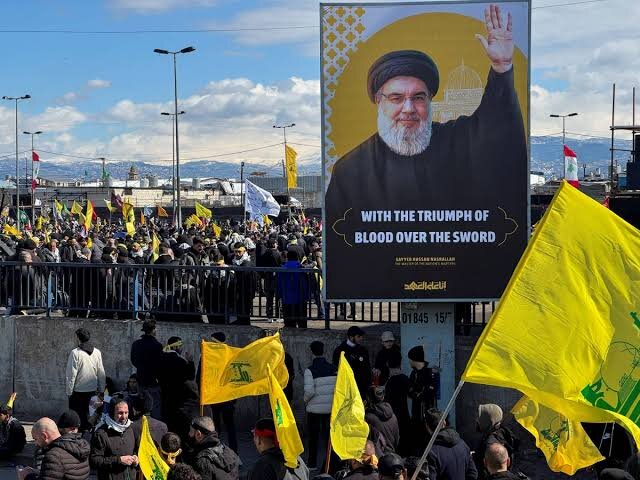How Washington and its allies are rewriting Lebanon’s future

BEIRUT — Lebanon stands at a decisive juncture. External powers, led by the United States and supported by Israel, are accelerating efforts to reshape the country’s political and military landscape.
These interventions aim to strip Beirut of its independent decision-making over war and peace, weaken Hezbollah’s civilian and defensive institutions, and impose a foreign-designed framework for the country’s southern border.
Beneath the rhetoric of “peace,” what is unfolding is a modern continuation of colonial control.
At the center of these maneuvers Tony Blair, the former British Prime Minister whose notorious legacy is inseparable from the Iraq War and the wider project of Western domination in West Asia, has re-emerged.
Blair’s anticipated visit to Beirut, officially framed as part of a “regional peace effort,” represents something more calculated. Reports indicate that he will arrive as head of a special delegation, potentially linked to the so-called “Peace Council” initiative in Gaza, an entity accused of institutionalizing a modern form of trusteeship.
Many in Beirut view Blair’s mission as an early attempt to prepare the ground for a similar mechanism in Lebanon, one that would place parts of the south under international administrative supervision.
His involvement in Washington’s post-war blueprints for the region underscores a consistent agenda: to replace Resistance with dependency and sovereignty with managed compliance.
Simultaneously, Paul Salem, the president of the Middle East Institute in Washington, has been quietly positioned at the heart of U.S.-backed diplomatic efforts.
President Joseph Aoun’s nomination of Salem as Lebanon’s potential representative in any future negotiating delegation with Israel has raised sharp concern among political observers.
Salem’s background reveals deep entanglement with Western policy circles. Born in Lebanon, he is the son of Elie Salem, the former Deputy Prime Minister and Foreign Minister who oversaw the May 17, 1983 agreement, a failed normalization deal with Israel conducted under U.S. sponsorship.
Paul Salem himself previously headed the Carnegie Middle East Center in Beirut and the Lebanese Center for Policy Studies, both institutions with strong Western funding and agendas aligned with U.S. regional priorities.
Observers argue that Washington directly influenced Salem’s nomination, pressuring President Aoun to include him as a negotiator who would “speak Lebanon’s name while serving Israeli interests.”
Salem’s public statements echo familiar rhetoric: framing Hezbollah as a destabilizing force, depicting U.S. policies as “supportive of Lebanon’s stability,” and urging tighter military and economic coordination with Western governments.
His long-standing record of advocating deeper integration with the Western security architecture reflects a mindset that internalizes colonial assumptions about governance, reform, and “acceptable sovereignty.”
In the financial arena, Anton Sehnaoui represents another dimension of this same project. As one of Lebanon’s most powerful bankers, Sehnaoui has turned the country’s financial crisis into a political weapon.
Working in coordination with Samir Geagea, leader of the Lebanese Forces (LF), Sehnaoui has used his banking network to restrict liquidity, pressure government institutions, and influence policy decisions.
Analysts describe this as a “financial war” against Hezbollah—one that targets not only its military capacity but also its extensive civilian institutions in health, education, and social welfare.
Sehnaoui’s ties to Western financial systems and Israeli-aligned networks give him leverage that extends far beyond Beirut’s economy.
His efforts parallel those of international think tanks advocating for the gradual dismantling of Hezbollah’s infrastructure as a precondition for Western aid.
Moreover, Sehnaoui’s ability to channel financial and media narratives makes him a key player in shaping electoral outcomes, reinforcing a system where economic survival is contingent upon political submission to U.S. and Israeli designs.
Together, Blair, Salem, and Sehnaoui illustrate the convergence of political, intellectual, and financial tools deployed to reassert Western control over Lebanon.
Each operates within a different domain—diplomatic, ideological, and economic—but all pursue the same objective: to neutralize the resistance, redefine sovereignty, and subordinate Lebanon’s independence to external “mechanisms” of supervision.
Leave a Comment